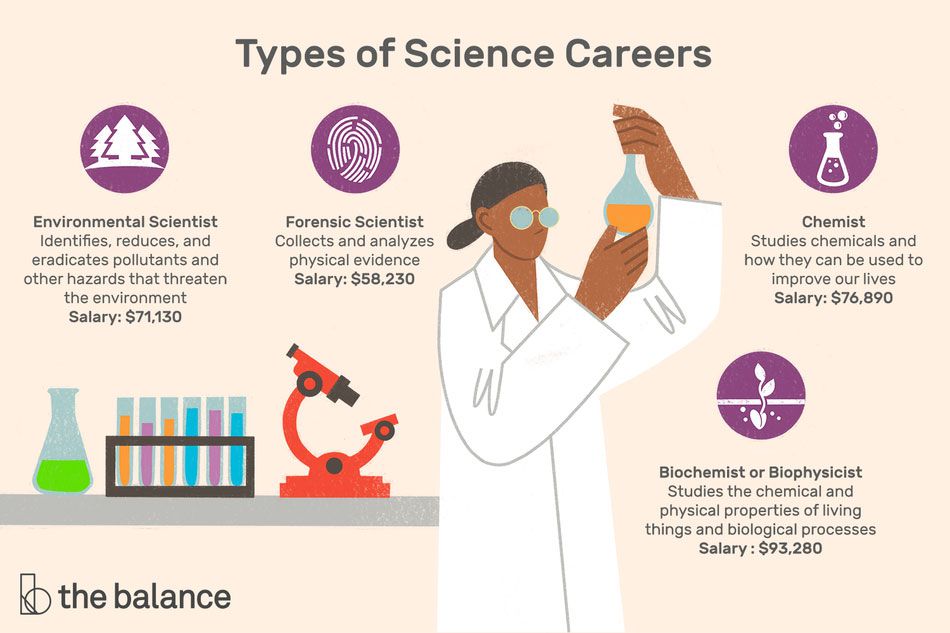9 Careers for Science Majors
Imagine a world without scientists. People who work in science careers are responsible for many of the things we, as a society, benefit from every day—ways to prevent and cure diseases, new technology, and strategies to help control climate change.
Try Adsterra Earnings, it’s 100% Authentic to make money more and more.

To prepare for a science career, you will have to study either life or physical science. Life sciences involve learning about living organisms and include subjects like biology, biochemistry, microbiology, zoology, and ecology. Physics, chemistry, astronomy, and geology are all physical sciences, which deal with the study of non-living matter.
Here are nine high paying science careers. The U.S. Bureau of Labor Statistics (B.L.S.) predicts that employment in most of these occupations will grow at least as fast as the average for all occupations between 2016 and 2026. Many will grow faster or much faster than the average. You may also be interested in learning about STEM careers, health professions, and health technology careers.
Biochemists and biophysicists study the chemical and physical properties of living things and biological processes. To work in this field, you will need at least a bachelor’s degree in biochemistry, biology, chemistry, or physics. This will qualify you for an entry-level job. A doctorate is required to do independent research or work in development.
Median Annual Salary (2018): $93,280
Number of People Employed (2016): 31,500
Projected Job Growth (2016-2026): 11% (faster than the average for all occupations)
Projected Jobs Added (2016-2026): 3,600
Chemists study chemicals and how they can be used to improve our lives. You will need a master’s degree or Ph.D. in chemistry for most jobs, but a limited number of positions require only a bachelor’s degree.
Median Annual Salary (2018): $76,890
Number of People Employed (2016): 88,300
Projected Job Growth (2016-2026): 6% (as fast as the average for all occupations)
Projected Jobs Added (2016-2026): 5,700
Conservationists help landowners and governments find ways to protect natural resources such as soil and water. To get a job in this field, you will have to earn a bachelor’s degree in ecology, natural resource management, agriculture, biology, or environmental science.
Median Annual Salary (2018): $61,310
Number of People Employed (2016): 22,300
Projected Job Growth (2016-2026): 6% (as fast as the average for all occupations)
Projected Jobs Added (2016-2026): 1,400
Environmental scientists identify, reduce, and eradicate pollutants and other hazards that threaten the environment or the population’s health. You can get an entry-level job with a bachelor’s degree in environmental science, biology, engineering, chemistry, or physics, but if you hope to advance, a master’s degree is necessary.
Median Annual Salary (2018): $71,130
Number of People Employed (2016): 89,500
Projected Job Growth (2016-2026): 11% (faster than the average for all occupations)
Projected Jobs Added (2016-2026): 9,900
Environmental science and protection technicians—sometimes called environment technicians—monitor the environment and investigate sources of pollution and work under environmental scientists’ supervision. You will have to earn an associate degree or a certificate in applied science or science-related technology, but some jobs require a bachelor’s degree in chemistry or biology.
Median Annual Salary (2018): $46,170
Number of People Employed (2016): 34,600
Projected Job Growth (2016-2026): 12% (faster than the average for all occupations)
Projected Jobs Added (2016-2026): 4,200
Forensic scientists—also known as forensic science technicians or crime scene investigators—collect and analyze physical evidence. Many employers prefer applicants who have at least two years of specialized training or an associate degree in applied science or science-related technology. Others will only hire those who have bachelor’s degrees in chemistry, biology, or forensic science.
Median Annual Salary (2018): $58,230
Number of People Employed (2016): 15,400
Projected Job Growth (2016-2026): 17% (much faster than the average for all occupations)
Projected Jobs Added (2016-2026): 2,600
Geoscientists search for natural resources or help environmental scientists clean up the environment. To get an entry-level research position you will need at least a bachelor’s degree in geoscience or earth science, but most research positions require a doctorate.
Median Annual Salary (2018): $91,130
Number of People Employed (2016): 32,000
Projected Job Growth (2016-2026): 14% (much faster than the average for all occupations)
Projected Jobs Added (2016-2026): 4,500
Hydrologists study bodies of water, both on the earth’s surface and underground. They look at their circulation, distribution, and physical properties. To work in this field, you will need a master’s degree in geoscience, environmental science, or engineering with a concentration in hydrology or water sciences.
Median Annual Salary (2018): $79,370
Number of People Employed (2016): 6,700
Projected Job Growth (2016-2026): 10% (faster than the average for all occupations)
Projected Jobs Added (2016-2026): 700
Medical scientists do research to determine the causes of disease. They also look for ways to prevent and cure them. To work as a medical scientist, you will need a doctorate in a biological science, a medical degree (M.D.), or both.
Median Annual Salary (2018): $84,810
Number of People Employed (2016): 120,000
Projected Job Growth (2016-2026): 13% (faster than the average for all occupations)
Projected Jobs Added (2016-2026): 16,100
Sources: Bureau of Labor Statistics, Occupational Outlook Handbook, 2017 and Occupational Employment Statistics, 2018.
More Story on Source:
*here*
9 Careers for Science Majors
Published By






13 replies on “9 Careers for Science Majors”
Thank you, I have recently been searching for information about this subject for ages and yours is the best I’ve discovered till now. But, what about the conclusion? Are you sure about the source?
Pretty nice post. I just stumbled upon your blog and wanted to say that I have truly enjoyed surfing around your blog posts. In any case I’ll be subscribing to your rss feed and I hope you write again very soon!
Wow, wonderful weblog format! How long have you been blogging for? you made blogging glance easy. The overall look of your web site is wonderful, let alone the content!
You have remarked very interesting points! ps nice web site.
I’ll right away seize your rss feed as I can not to find your email subscription link or e-newsletter service. Do you’ve any? Please let me recognize so that I could subscribe. Thanks.
Some genuinely interesting info , well written and loosely user genial.
Excellent beat ! I would like to apprentice while you amend your website, how could i subscribe for a blog site? The account helped me a acceptable deal. I had been a little bit acquainted of this your broadcast offered bright clear concept
Very interesting subject, appreciate it for putting up.
Very good written information. It will be useful to anyone who usess it, including myself. Keep up the good work – for sure i will check out more posts.
My brother recommended I may like this web site. He was entirely right. This publish truly made my day. You cann’t imagine simply how so much time I had spent for this information! Thank you!
You made some nice points there. I looked on the internet for the subject matter and found most guys will approve with your blog.
I have been absent for a while, but now I remember why I used to love this website. Thank you, I¦ll try and check back more often. How frequently you update your site?
Really great information can be found on website.